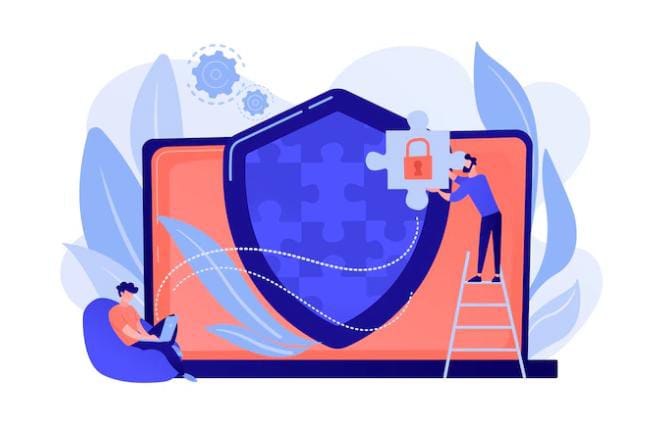
The In-Depth Guide to VPNs and Network Security
Virtual Private Networks (VPNs) are a cornerstone in the field of network security, offering a layer of protection and privacy in digital communications.
This in-depth guide explores how VPNs contribute to network security, detailing their mechanisms, benefits, and the various contexts in which they are employed.
VPNs in Network Security
VPNs enhance network security by encrypting data transmission and providing secure connections over public networks, making them essential tools for protecting sensitive information.
The Mechanism of VPNs
- Data Encryption: VPNs encrypt data before it travels across the internet, ensuring that intercepted data remains unreadable.
- Secure Tunnels: They create a secure ‘tunnel’ through which data can pass safely, shielding it from external threats.
Applications of VPNs in Network Security
Protecting Data Transmissions
- Public Wi-Fi Security: VPNs are vital for securing connections on public Wi-Fi networks, which are often targets for cyber attacks.
- Remote Access Security: They provide a secure way for employees to remotely access corporate networks, protecting sensitive company information.
Enhancing Online Privacy
- Anonymity: Finding the best VPNs for privacy is not easy although VPNs mask the user’s IP address, enhancing their privacy and preventing potential tracking or profiling.
- Browsing Security: They protect users from various online threats, including hackers and surveillance.
VPNs in Corporate and Personal Contexts
VPNs are used in both corporate and personal settings, each with distinct objectives and requirements.
Corporate VPNs
- Remote Work: Corporate VPNs enable secure remote access to company resources.
- Data Protection: They play a critical role in safeguarding company data, especially in industries that handle sensitive information.
Personal VPNs
- Individual Privacy: Personal VPNs protect individuals’ privacy and security, particularly when engaging in sensitive online activities.
- Content Access: They enable users to access geo-restricted content, expanding their digital accessibility.
VPN Protocols and Their Security Aspects
VPN protocols determine the method of data transmission and encryption, influencing the overall security of the VPN.
Common VPN Protocols
- OpenVPN: Known for its robust security and compatibility with various operating systems.
- WireGuard®: A newer protocol praised for its speed and security features.
- L2TP/IPsec: Combines two protocols for enhanced security, commonly used in corporate VPNs.
- PPTP: An older protocol, less secure than others, and generally not recommended for sensitive transactions.
Advanced Features of VPNs
Advanced Encryption Techniques
- Strong Encryption Standards: Most VPNs use AES-256 encryption, providing a high level of security.
Network Configuration and Management
- Customizable Settings: Advanced VPNs in 2024 offer various settings for network configuration and optimization.
- Network Management Tools: Some VPNs provide tools for managing network access and monitoring traffic.
Challenges and Considerations in VPN Implementation
Balancing Speed and Security
- Encryption Overhead: Encryption can slow down network speeds, requiring a balance between security and performance.
- Protocol Selection: Choosing the right protocol can impact the speed and security of the VPN.
Compliance and Legal Factors
- Regulatory Compliance: VPNs must comply with various laws and regulations, especially in corporate environments.
- Legal Restrictions: The use of VPNs is restricted in some countries, necessitating awareness of local laws.
Conclusion
VPNs are a vital component of modern network security, offering robust data protection, privacy, and secure remote access.
Understanding the nuances of VPN technology, including protocols, encryption, and applications in different contexts, is crucial for anyone looking to enhance their network security.
Frequently Asked Questions – (FAQs)
How Do VPNs Contribute to Network Security?
VPNs enhance network security by encrypting data transmissions and creating secure tunnels for data exchange, protecting against cyber threats and unauthorized access.
Which VPN Protocol Offers the Best Security?
OpenVPN is widely regarded for offering a strong balance of security and performance, making it a popular choice for both personal and corporate use.
Are VPNs Necessary for All Businesses?
While not mandatory, VPNs are highly recommended for businesses, especially those that handle sensitive data or have employees working remotely, to ensure secure data transmission.
Can VPNs Ensure Complete Anonymity and Security?
VPNs significantly enhance security and anonymity but should be used in conjunction with other security measures for comprehensive protection.







